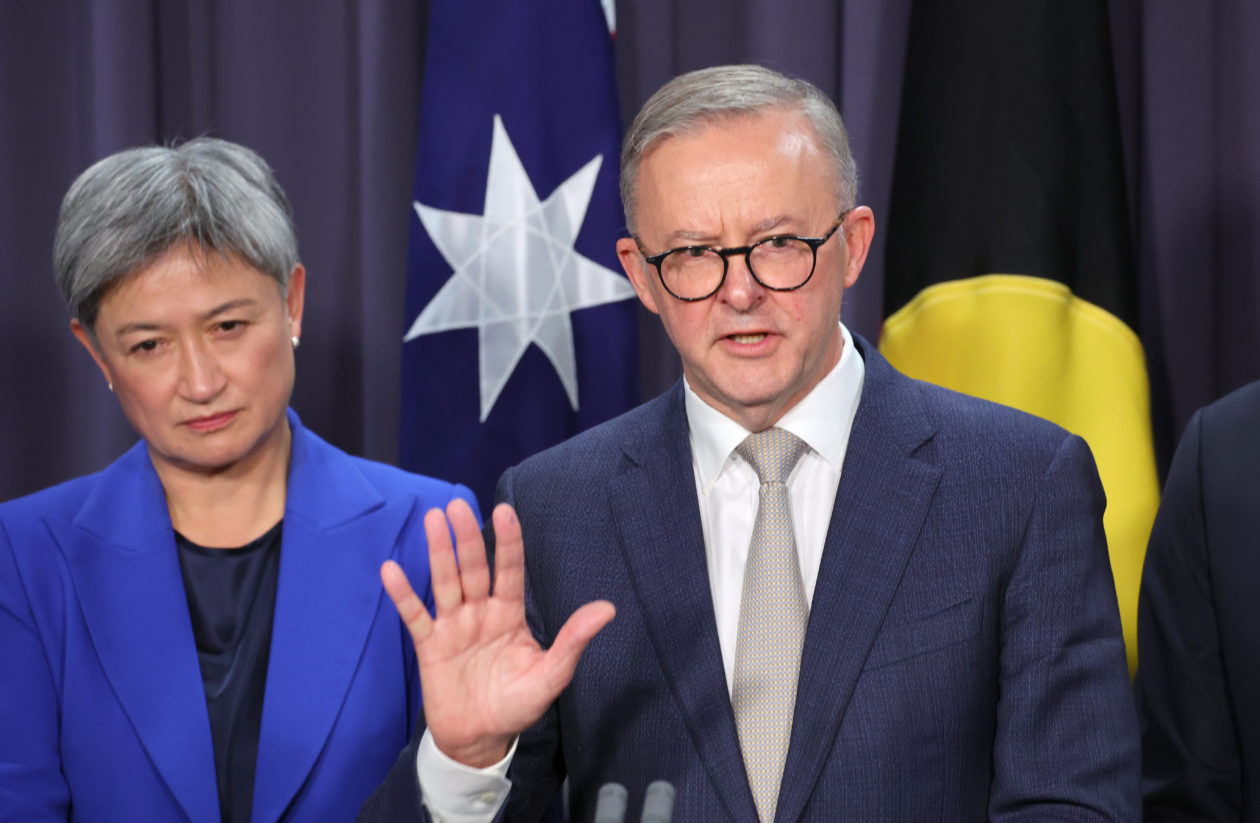The Australian Labor Party won the federal election over the weekend to form a new government, which — depending on whom you talk to — is a mixture of good and bad for the cryptocurrency industry.
On the downside, voters tossing out the Liberal Party means some of the industry’s most vocal supporters in Australia are now out of power. They include senators Andrew Bragg and Jane Hume, losing influence as more progressive parties gained Senate seats, as well as the former Treasurer Josh Frydenberg, who lost his seat altogether.
While cryptocurrency regulation in the country has received mostly bipartisan support in recent months, it was the Liberal Party that was leading the charge, said Caroline Bowler, chief executive officer of Australian crypto trading platform BTC Markets.
“I don’t believe that the Labor Party themselves had gone as far along in terms of policy development as the Liberal Party had done,” Bowler said in an interview. Still, regardless of who is in power, regulatory issues around crypto will need to be tackled within the next parliamentary term, she said.
Much is at stake. Australia’s cryptocurrency industry could swell by up to 30 times by 2030, according to a December report by EY (formerly Ernst and Young). The industry was valued at AU$2.1 billion (US$1.5 billion) in 2021 and employed around 11,600 people, which may grow to AU$68.4 billion and employ more than 200,000 people, the report estimates.
The Labor Party’s financial services spokesman Stephen Jones said earlier this year that crypto would be considered as part of a broad overhaul of the legislation around digital payments and financial services, The Sydney Morning Herald reported.
Bowler said: “Issues beyond our borders are going to bring the issue of crypto very much to the forefront in the next 12 to 18 months,” adding that major global economies will start to draw up rules for the industry and that Australia could not afford to fall behind in this emerging industry.
Australia recently approved not one, but three crypto-based exchange-traded funds (ETFs) — two in Bitcoin and one in Ethereum — the first in the region to do so.
“It’s important Australia doesn’t lose its crown in the region,” Bowler said.
The politics
The Liberal Party, despite its name, is the more conservative of Australia’s two major political parties. Its main rival, the Labor Party, is the more progressive but still center-right alternative, according to the ABC “Vote Compass,” which measures voter sentiment.
In the recent election, voters swung towards Labor, the Green party, and a swath of independents, as climate change emerged as a key issue, as well as the perception the Liberal government fell short on women’s rights, following allegations of sexual assault within parliament house in early 2021.
“Given the issues that the country was grappling with, cryptocurrency and crypto trading quite rightfully doesn’t compete [with] issues like climate change or the role of women in society,” said Bowler.
Now that the election is over, the Labor Party has to govern and some executives say the politics at the heart of cryptocurrency could appeal to the incoming government.
“Crypto is known for being built on an ethos around equal opportunity and accessibility, two principles the left promotes,” said Blake Cassidy, chief executive officer of Bamboo 61 Pty Ltd., an Australian company offering micro-investments in cryptocurrency. “Tenets of privacy and individual ownership have historically appealed to the right,” he said in an interview with Forkast.
The flip side of that is a more progressive economic philosophy by Labor could translate into a more conservative approach to cryptocurrency regulation.
“The Labor government is expected to place a strong emphasis on ‘consumer/investor protection’ in relation to cryptocurrencies,” said Michael Bacina, a partner at Australian commercial law firm PiperAlderman. “The ongoing regulatory consultation already has these protections as a key element of a future framework.”
Coming up
A parliamentary committee led by Senator Bragg on Australia’s fintech industry released a report last October offering recommendations for regulating cryptocurrencies, saying the industry is here to stay and could provide jobs for tens of thousands of people.
The Treasury Department is now compiling a report on how to best implement the proposed regulations, which is open to industry consultation until Friday.
Incoming Labor Treasurer Jim Chalmers has criticized his predecessor’s lack of action on the matter, however, arguing there has been too much consulting in the process, resulting in a “wasted decade of missed opportunities in the economy.”
On the upside, Chalmers is expected to be one of the Labor members at the forefront of crypto regulation under the new government, who, along with fellow Member of Parliament Ed Husic, has demonstrated a history of consulting and understanding the crypto industry.
Roughly 600,000 of Australia’s 26 million people had invested in cryptocurrency in recent years, according to Senator Bragg’s report. That number is now likely to be higher as the report was compiled more than six months ago.
Bowler at BTC Markets reckons it’s inevitable that crypto “just grows in popularity for Australians.”

